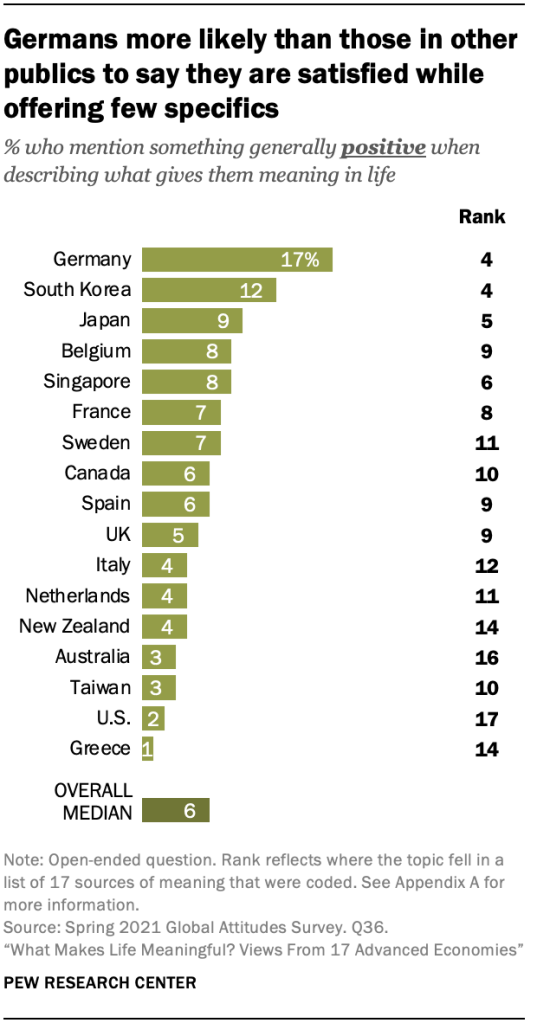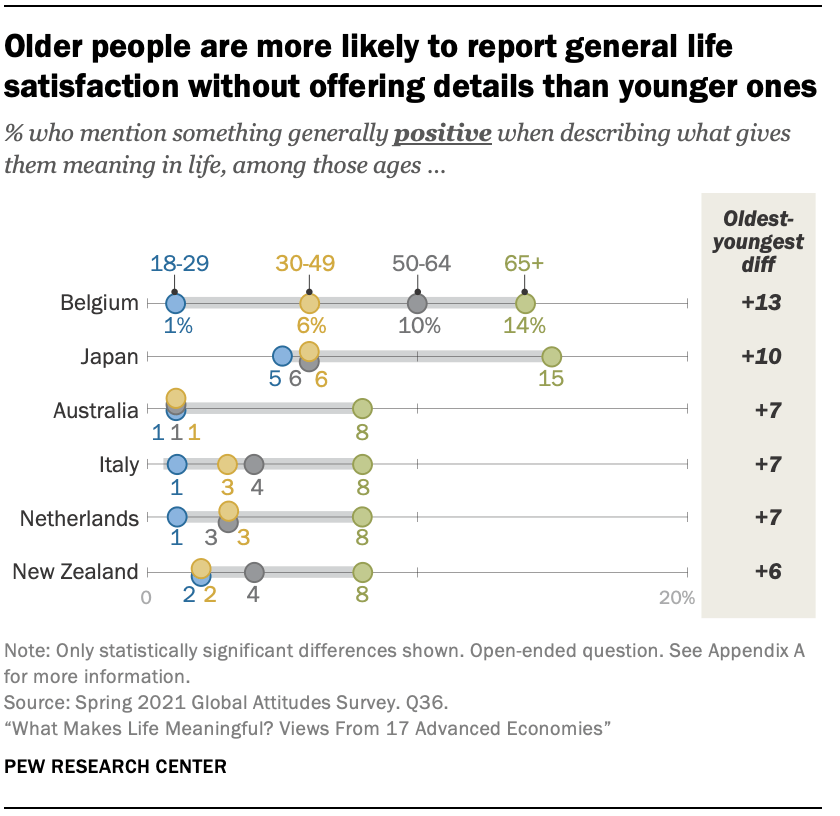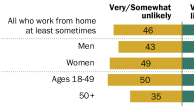The majority of people in most places surveyed identify specific things – or people or activities – that make them satisfied with their lives. But some people refrain from offering detailed responses, responding instead that they are satisfied with life, that they feel fulfilled, or something else broadly general but still positive.3 One typical response of this ilk comes from a woman in Australia, who responded: “I find all aspects of my life meaningful, fulfilling and satisfying. I am very happy.”
The share of the public who offer these broad but positive assessments varies widely, from a low of 1% in Greece to a high of 17% in Germany. In Germany, this makes it the fourth most proffered response, tied with material well-being and behind only family, occupation and health. But in most places, it is significantly less common, as is the case in Australia, where this topic is tied with mentions of pets (3%).
In some places surveyed, older people are more likely to respond in this general manner. In Belgium, for example, 14% of those ages 65 and older report satisfaction without details, compared with just 1% of those under 30. These age-related patterns sometimes emerge explicitly in the responses, such as with one Spanish man who noted, “I am content with what I have, I don’t aspire to further achievements at age 72.” Similarly, one Dutch man stated, “I live my life in a meaningful way, I find that’s very important. I am 70 years old and I’m still doing meaningful things.”
People with lower levels of education are also sometimes more likely to declare their general satisfaction than those with higher levels of education in several publics surveyed. In Canada, for example, 9% of those with less than a postsecondary degree offer this type of broadly positive response, while 3% of those with a postsecondary degree or more say the same. Individuals with lower incomes, too, are often more likely to give this type of answer than those with higher incomes in most of the Asia-Pacific publics surveyed.






